We are too difficult …
Editor’s note: This article is from WeChat public account “爱 范 儿” (ID : ifanr) , author Lei Jianheng.
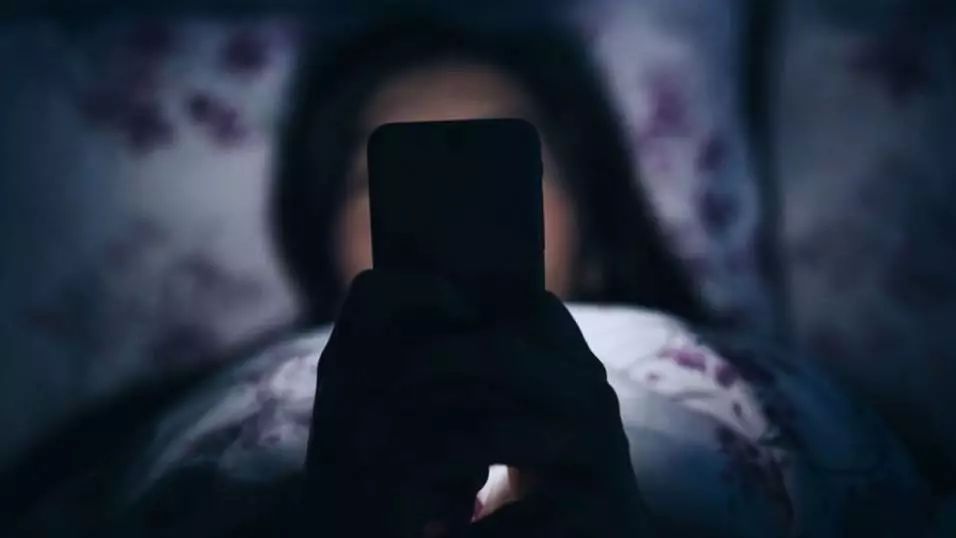
The new crown virus cannot be seen or touched, but the panic it brings is unprecedented.
For more than a month, most people can only feel this virus less than 100 nanometers in diameter through the increasing numbers and live cases through mobile phone screens.
But it is these numbers and cases that make many people’s psychological state from nervousness, anxiety, and numbness this month.
Someone will send this self-doubt:
If I read too much negative information, I will feel depressed and anxious. Is it because I am too arrogant?
I’m not so concerned about the beginning of the epidemic, and I don’t even want to bother about it at all. Is it that the initial attention and sympathy only followed the trend, but in fact I am a cold person?
Is that you? Don’t be nervous even if you say yes.
Because these states are not normal, they are also normal.
01. I feel anxious, not because of your pretensions
Why do you feel anxious across the screen even if you are thousands of miles away from the affected area?
All of this starts with our brain structure.
In our brain, there is a type of neuron cell called a “mirror neuron.” These cells make up 20% of all brain cells.
What is the use of these cells? Now please take a closer look at the picture below.

After reading this picture, do you also have an urge to yawn?
People often say that yawning is “contagious”, in fact, “mirror neurons” are at work.This type of nerve cell is responsible for these things.
Isn’t that simple? Originally, my brain is not enough. I have to allocate 20% to do this?
Things are not that simple. The discoverer of mirror neurons, the famous neurologist Giacomo Rizzolati, said in his book “I see you are myself” without mirror neurons, humans would not Today’s civilization may not even live today.
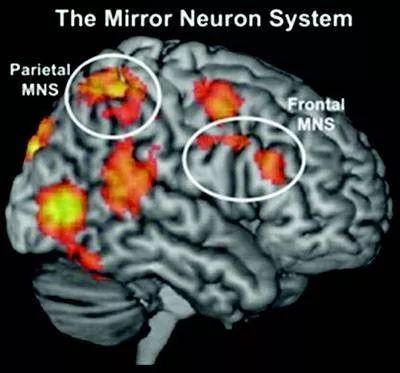
Mirror neuron system
A major contribution of mirror neurons is human empathy. When you see what is happening to others, empathy comes into play, unconsciously putting yourself in the feelings of the other person.
Giacomo Rizzolati believes that it is precisely because of empathy that allowed the early apes to unite and help each other and survive in extremely harsh environments. It is also because of empathy that humans A modern civilization can be built in such a short period of time.
Of course, mirror neurons can also cause problems for humans. Think about it, why did n’t it happen to you, but when you watched “Want to Meet You”, sometimes you were so sweet that your aunt laughed and sometimes you cried until you lost sleep. This is exactly how mirror neurons drive empathy.

Similarly, when disasters and epidemics occur, a lot of related reports stimulate your mirror neurons and make you feel sad.
And once this stimulus occurs in a short period of time and with high intensity, humans will easily suffer from “alternative trauma”, resulting in depression, anxiety, and even mental breakdown.
In 1996, the University of Georgia and Kennesaw State University conducted a large-scale experiment on this matter. This experiment also confirmed that after watching a lot of news about disasters and diseases, people will experience negative emotions such as depression and anxiety to varying degrees. One-third of the participants in the experiment will even experience insomnia, decreased appetite, and cannot stop. CryingWeep.
So even if the epidemic and disaster did not happen to you, you still feel anxious and upset. This is not because of pretentiousness, the brain structure is doomed to such a result, and you don’t need to think that it is a shame.

02. Do you not want to listen, don’t want to watch, and want to share happiness in your circle of friends, does it mean that you are indifferent?
I believe that many people will fall into such self-doubt now:
Am I actually an indifferent person?
In the early stage of the epidemic, these people will pay a lot of attention to and forward news related to the epidemic, and will express their sympathy or anger.
But up to now, these people have become unwilling to see or listen, and will skip it consciously when they get the relevant information.
So these people will wonder if their initial attention and sympathy is just a temporary follow-up, not from the heart?
The opposite is true.
On the one hand, because the information has passed the stage of dense burst.
On the other hand, the reason you no longer want to pay attention to the epidemic is not because you are indifferent, but because your empathy is tired. This is also another kind of psychological trauma brought by the epidemic, called “compassion fatigue”.
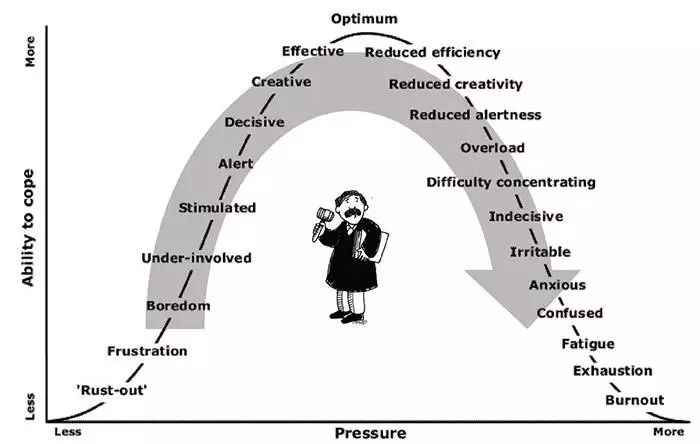
Empathy is actually a psychological resource. Although it is not limited, it takes time to recover after huge consumption. And when we get too much negative information in a short period of time and release too much sympathy, empathy will be exhausted and sympathetic fatigue will be generated.
In addition, it takes a lot of energy to sympathize with others, because this behavior is to let your brain imitate other people’s brains (find a perfect reason for you to sleep and eat).
So not only are you mentally hollowed out, your body is also hollowed out.
Once empathy is exhausted, our brain activates defenses to keep us away from stimuli.
So IThey will become numb.
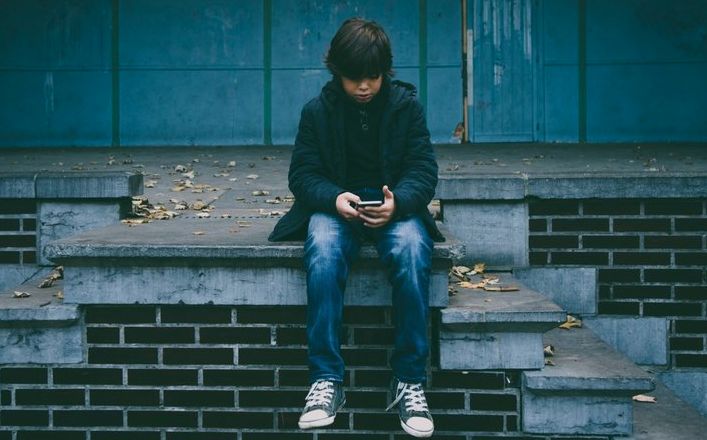
In addition, there are still some people who want to share some happy things in the circle of friends, but they will give up because they are “out of season”.
Don’t hesitate in sharing happiness, let alone guilt and doubt.
Li Songwei, a doctor of psychology at Peking University, published an article during the epidemic. He believes that the more difficult the time, the more human beings will be bright and happy.
Moreover, we must not only acknowledge our happiness, but also allow others to be happy, otherwise we will fall into “emotional abduction.”
Remember the nurse who was scolded by netizens because he was better than scissors?

Image from: Sina Weibo
In fact, sympathetic fatigue was first discovered in medical personnel. Because of the large number of elderly, sick, and dead faced every day, medical personnel are more prone to sympathetic fatigue than ordinary people.
So, this “scissor hand” is not the heartless and heartless in the mouth of the keyboard man, but it is commendable like the warm sun in winter.
03. Media uses empathy, readers are sympathetic to fatigue, and the situation is in a vicious circle
“Slow fruit sales, save the old farmers.”
It is undeniable that poverty alleviation through fresh produce has indeed allowed many agricultural products that are not sold in the mountains to be sold more quickly, and also helped some poor farmers.

But there are actually many marketing routines that use buyer sympathy.
The situation is the same in the media’s epidemic report.
After the epidemic broke out, there were many media pursuing the truth and reporting facts, but there are also many ways to use readers’ empathy and deliberately enlarge the details to attract attention.
Susan Moeller, a professor of journalism at the University of Maryland, points out in his book “Compassion Fatigue: How the Media Sells Illness, Hunger, War, and Death”: Compassion fatigue is a vicious circle. The media always needs to break the defense of the audience and let every A disaster feels worse than it really is.
The meaning is that both readers and the media can easily enter the “media coverage epidemic → readers’ sympathy fatigue → the media re-evokes readers’ sympathy with more exaggerated methods → readers’ sympathy fatigue deepens … In a vicious circle.
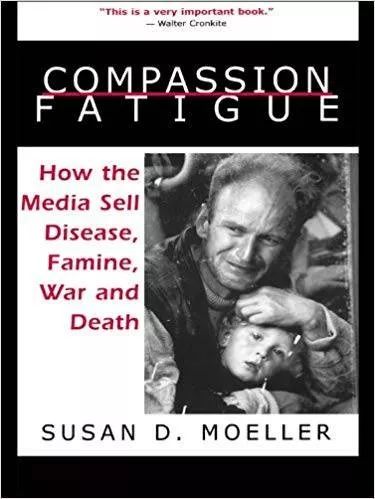
Compassion Fatigue: How the Media Sell Disses, Famine, War and Death
It is even more unfortunate that such a vicious circle is more serious at the moment when most people’s information sources are controlled by algorithm recommendations.
The American Center for Diseases has published a paper saying that suicide is contagious. After large-scale unscientific reporting of suicides, suicide rates often increase. This is also called the “contagious effect of suicide.”
The truth is the same for epidemic reports. Anxiety and panic are also contagious. This also reminds many media that the truth is important, but the scientific method is also important.
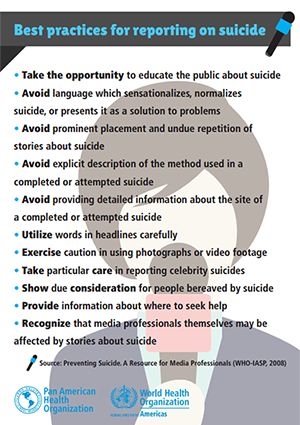
WHO Suicide Reporting Principles
As for the readers to escape this cycle, it is simpler to avoid these “compassion bombardments”.
Some netizens joked that the anxiety of young people comes from Weibo, and the anxiety of middle-aged and old people comes from WeChat circle of friends. Turn off the phone.
NoIt doesn’t make sense, but to be more precise, you need to carefully filter your information source.
04. The epidemic will eventually recede, and psychological intervention will never be too late
I believe that the two words that people are most concerned about recently should be the “inflection point”.
Although I do n’t know when, it is certain that the epidemic will eventually recede and people will eventually return to their original trajectories.
But for psychological intervention, we still cannot relax. Because when you pay attention to and support evacuation and you really have to face life after the epidemic, some potential problems will gradually emerge.

For individuals, psychological intervention is never too late, and the best treatment time is immediately.
To this end, we have prepared the following list. If you have one or more of the following conditions, then you may have an excessive stress response caused by “alternative trauma”:
1. It takes a lot of time to pay attention to the epidemic every day, and it can’t even stop.
2. When you see negative information, you will continue to experience depression and pain, and even cry.
3. I can’t control myself to think about the epidemic.
4. I am no longer interested in things that I usually like, and I ca n’t concentrate on things
5. Transitional panic, always worried about being infected by yourself or those around you.
6. Anxiety leads to decreased appetite, poor sleep quality, and physical fatigue.
In case of unfortunate correspondence, there is only one suggestion we can give, and that is to find a professional psychological counseling agency to intervene as soon as possible. We have also attached psychological counseling hotlines across the country at the end of the article so that truly professional people can help you.
Emphasis once again that the emergence of psychological problems, especially in such a large-scale epidemic, is a very normal situation, and the incident itself is not a shame.
And if you do n’t have the above situation, but just a little anxiety, then you can try to relieve it:
1. Normalize your life, what should you do, and maintain your previous rules of life.
2. Reduce unnecessary input of epidemic situation information, but you don’t need to ignore anything. After all, fear comes from ignorance. Also clean up your sources of information.
3. Spend more time on work and interests.
4, negative







“Slow fruit sales, save the old farmers.”
It is undeniable that poverty alleviation through fresh produce has indeed allowed many agricultural products that are not sold in the mountains to be sold more quickly, and also helped some poor farmers.

But there are actually many marketing routines that use buyer sympathy.
The situation is the same in the media’s epidemic report.
After the epidemic broke out, there were many media pursuing the truth and reporting facts, but there are also many ways to use readers’ empathy and deliberately enlarge the details to attract attention.
Susan Moeller, a professor of journalism at the University of Maryland, points out in his book “Compassion Fatigue: How the Media Sells Illness, Hunger, War, and Death”: Compassion fatigue is a vicious circle. The media always needs to break the defense of the audience and let every A disaster feels worse than it really is.
The meaning is that both readers and the media can easily enter the “media coverage epidemic → readers’ sympathy fatigue → the media re-evokes readers’ sympathy with more exaggerated methods → readers’ sympathy fatigue deepens … In a vicious circle.

Compassion Fatigue: How the Media Sell Disses, Famine, War and Death
It is even more unfortunate that such a vicious circle is more serious at the moment when most people’s information sources are controlled by algorithm recommendations.
The American Center for Diseases has published a paper saying that suicide is contagious. After large-scale unscientific reporting of suicides, suicide rates often increase. This is also called the “contagious effect of suicide.”
The truth is the same for epidemic reports. Anxiety and panic are also contagious. This also reminds many media that the truth is important, but the scientific method is also important.

WHO Suicide Reporting Principles
As for the readers to escape this cycle, it is simpler to avoid these “compassion bombardments”.
Some netizens joked that the anxiety of young people comes from Weibo, and the anxiety of middle-aged and old people comes from WeChat circle of friends. Turn off the phone.
NoIt doesn’t make sense, but to be more precise, you need to carefully filter your information source.
04. The epidemic will eventually recede, and psychological intervention will never be too late
I believe that the two words that people are most concerned about recently should be the “inflection point”.
Although I do n’t know when, it is certain that the epidemic will eventually recede and people will eventually return to their original trajectories.
But for psychological intervention, we still cannot relax. Because when you pay attention to and support evacuation and you really have to face life after the epidemic, some potential problems will gradually emerge.

For individuals, psychological intervention is never too late, and the best treatment time is immediately.
To this end, we have prepared the following list. If you have one or more of the following conditions, then you may have an excessive stress response caused by “alternative trauma”:
1. It takes a lot of time to pay attention to the epidemic every day, and it can’t even stop.
2. When you see negative information, you will continue to experience depression and pain, and even cry.
3. I can’t control myself to think about the epidemic.
4. I am no longer interested in things that I usually like, and I ca n’t concentrate on things
5. Transitional panic, always worried about being infected by yourself or those around you.
6. Anxiety leads to decreased appetite, poor sleep quality, and physical fatigue.
In case of unfortunate correspondence, there is only one suggestion we can give, and that is to find a professional psychological counseling agency to intervene as soon as possible. We have also attached psychological counseling hotlines across the country at the end of the article so that truly professional people can help you.
Emphasis once again that the emergence of psychological problems, especially in such a large-scale epidemic, is a very normal situation, and the incident itself is not a shame.
And if you do n’t have the above situation, but just a little anxiety, then you can try to relieve it:
1. Normalize your life, what should you do, and maintain your previous rules of life.
2. Reduce unnecessary input of epidemic situation information, but you don’t need to ignore anything. After all, fear comes from ignorance. Also clean up your sources of information.
3. Spend more time on work and interests.
4, negative
